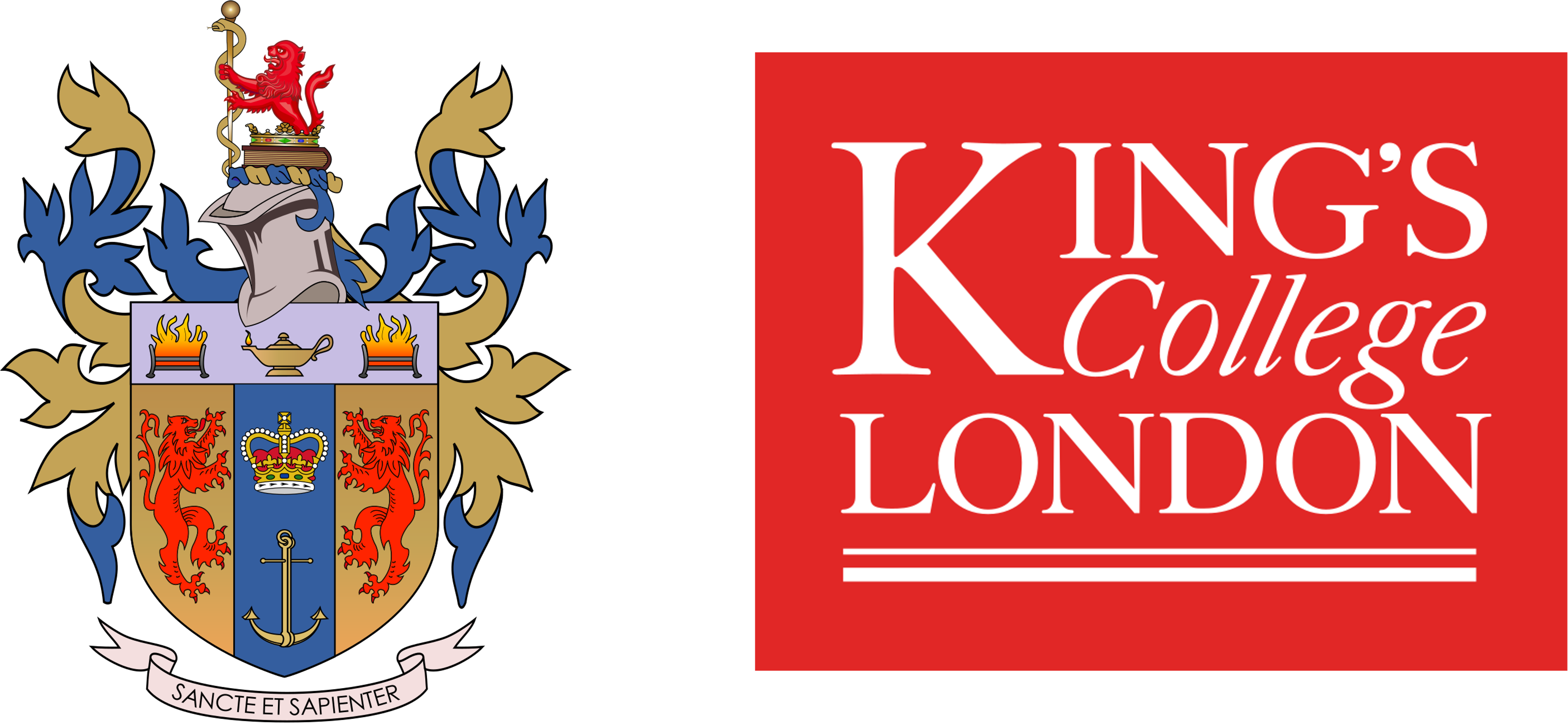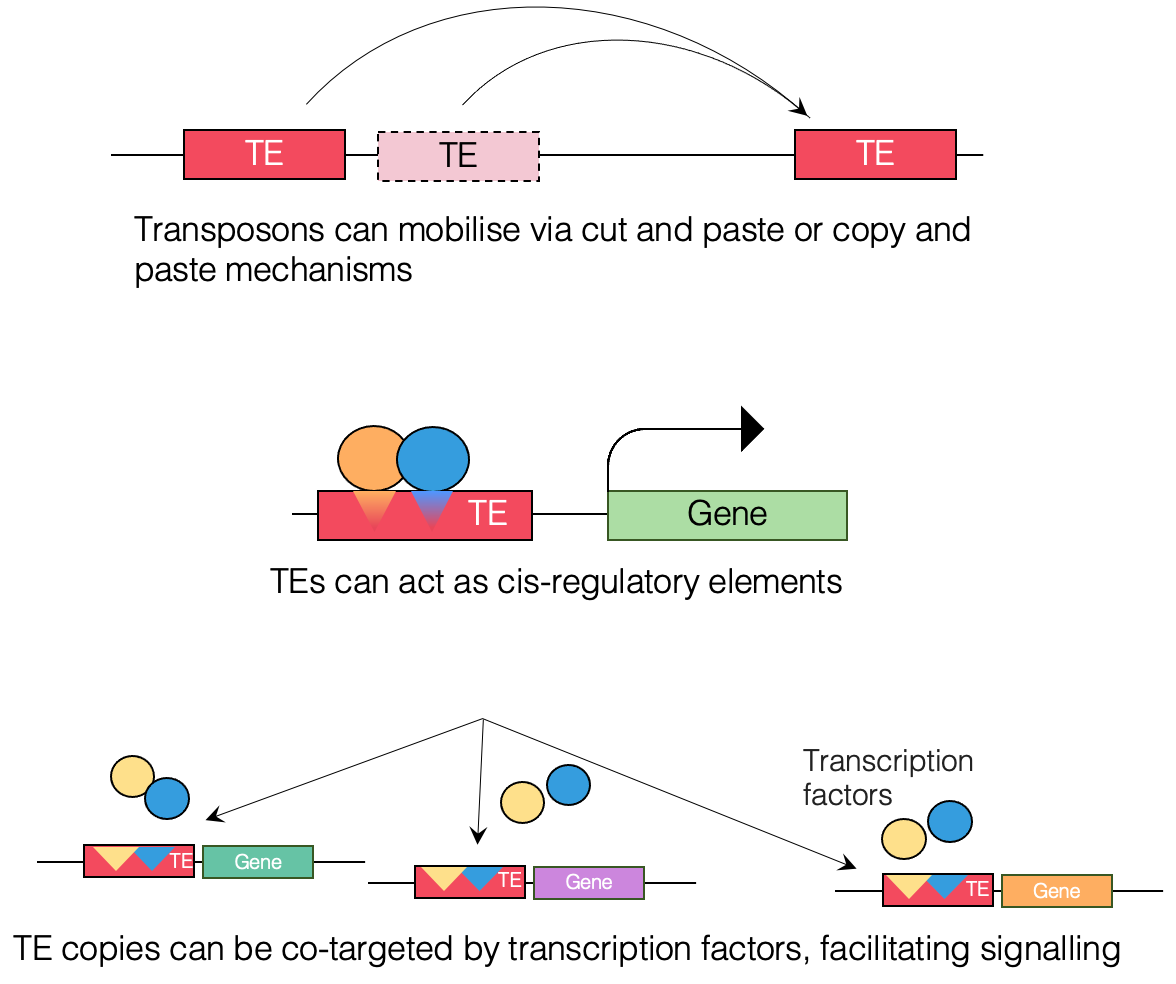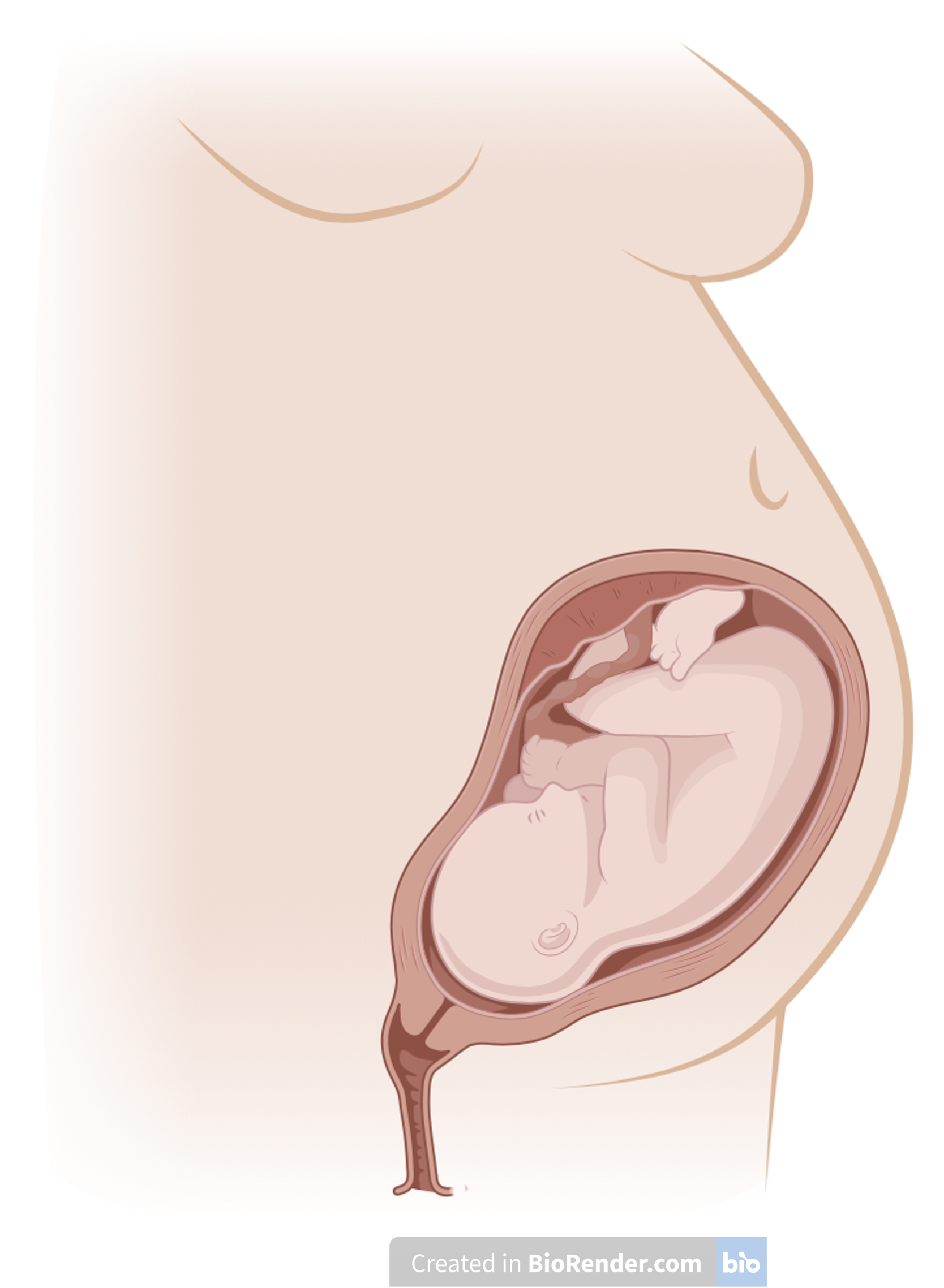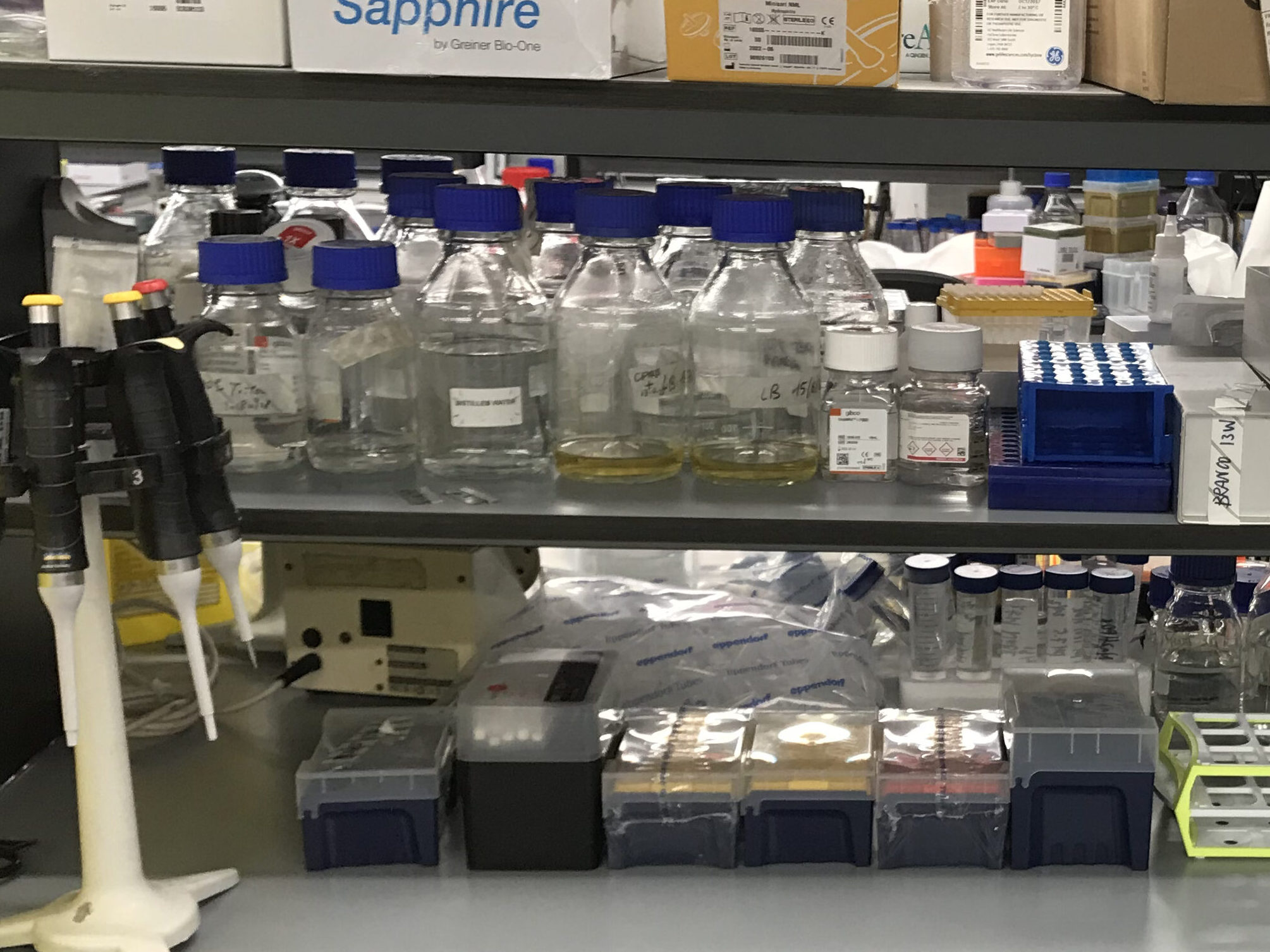Transposable elements and pregnancy complications
Frost Lab – overview
Ancient transposon sequences have the potential to regulate gene expression. This process is prominent in the placenta. Our research program seeks to explore the regulation and function of transposons in the human placenta, and their potential role in pregnancy complications. We are part of the Medical and Molecular Genetics department at King’s College London, Guy’s Campus.


Transposable elements
Transposable elements (TE)s are DNA sequences that have, or previously had, the ability to move within the genome. Around half of the human genome is derived from TE sequences, which can be broadly classified by their mode of transposition, e.g. DNA transposons move via a cut-and-paste mechanism, and retrotransposons via a copy-and-paste mechanism, utilising an RNA intermediate. One particular family of retrotransposons, so-called Long Terminal Repeat (LTR) retrotransposons make up around 8% of the human genome. LTR elements, often present in the genome as lone LTRs following recombination, harbour transcription factor binding sites, and can regulate genes. As such, TEs have been shown to be important for many physiological functions in humans and other organisms.
The human placenta
The placenta is vital for pregnancy, and its aberrant development can lead to pregnancy loss or other complications. Placentation requires a complex interplay between mother and fetus for healthy growth and development, and the genetic, epigenetic and environmental influences on this process are under explored and exciting areas of research.


Pregnancy complications
Pregnancy complications such as fetal growth restriction, stillbirth, spontaneous preterm birth, and a dangerous hypertensive disorder of pregnancy known as pre-eclampsia, affect up to 20 % of human pregnancies, causing maternal and fetal morbidity and mortality. Although the molecular aetiology of these disorders is not well understood, they are thought to share in part a common pathogenesis of insufficient uterine invasion by the placenta.
Medical and Molecular Genetics
Medical and Molecular Genetics (MMG) is a dynamic and interdisciplinary department, featuring expertise in genomics, genetics, and epigenetics across a wide range of human disease models. The department is part of the School of Basic and Medical Biosciences, within the Faculty of Life Sciences and Medicine (FoLSM) at King’s College London. We are located in the Tower Wing of Guys Hospital.


King’s College London
Rated as one of the top 10 UK universities in the world1 and ranked sixth in the UK for the quality and quantity of research activity2, King’s is a leading university providing world-class teaching and cutting-edge research. King’s has played a major role in many of the advances that shape modern life, such as the discovery of the structure of DNA and research that led to the development of radio, television, mobile phones and radar. King’s continues to lead the way on research and pioneers new ideas to make the world a better place.
King’s is London’s most central university, with five campuses linked through the heart of the capital, enabling us to build partnerships with key London institutions and form international conversations. We collaborate on research projects, share teaching resources and create internship opportunities to enhance our students’ experience. Current partners include the British Library, British Museum, National Gallery, Shakespeare’s Globe, Southbank Centre, Tate Modern, and more. Our central location and varied partnerships allow students to get connected in one of the world’s most dynamic cities.
King’s is not only an enriching experience from an academic perspective – we have a diverse and active student community, with more than 30,000 students from some 150 countries worldwide.
1 QS World University Rankings 2021
2 Research Excellence Framework 2014
